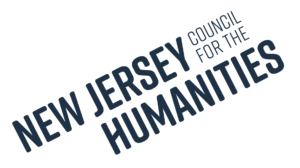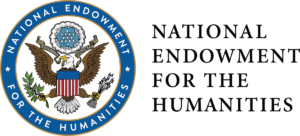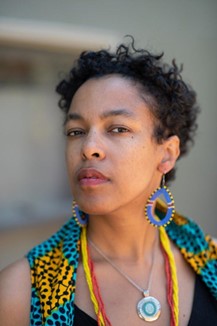Join us for the first in a series of three dynamic conversations led by student-scholars of color in African American Studies and Women’s, Gender and Sexuality Studies at The College of New Jersey. This talk features a focused look at pieces in both The Color Network’s exhibit, Fragile: Earth and Roberto Lugo’s exhibit, The Village Potter. The talks draw upon themes explored through the students’ immersive engagement with the artwork and the question, “What worlds open for us when we experience an artwork?”
Dr. Raina León in conversation with Destiny Kenny & Saray Ramos.
This engaging discussion considers futurism and movement (in all its expansiveness), inspired by Salvador Jimenez-Flores’s The Cosmic Life of a New World That is Yet to Come and Roberto Lugo’s exhibit, The Village Potter.
Destiny Kenny (she/her) is a lover of psychology, who attempts to bring awareness to the unconscious biases in our thoughts and actions, and how they affect us in different aspects of our lives. She is a recent graduate from The College of New Jersey, where she majored in Psychology and minored in Women, Gender, & Sexuality Studies. She is looking to take her work out of the lab and into the world.
Dr. Raina León is a teacher, writer, artist, curator, scholar, and speaker. You might know her as a founding editor of The Acentos Review, the lead coordinator for Nomadic Press Philadelphia, the author of black god mother this body, and co-founder of StoryJoy, Inc. with Dr. Norma Thomas. She does lots of things and invites you to dream with her sometime. More information about her can be found at rainaleon.com
Saray Ramos (she/they) is a recent TCNJ graduate in Women’s, Gender, and Sexuality studies. She currently works as the Health Justice Coordinator for the Latino Action Network Foundation working on issues related to the Latinx community’s reproductive, sexual, and mental health.


Cultural Conversations is supported by a grant from the New Jersey Council for the Humanities with funding from the National Endowment for the Humanities (NEH) through the American Rescue Plan Act. Any views, findings, conclusions, or recommendations expressed in these programs do not necessarily represent those of the National Endowment for the Humanities or the New Jersey Council for the Humanities.
